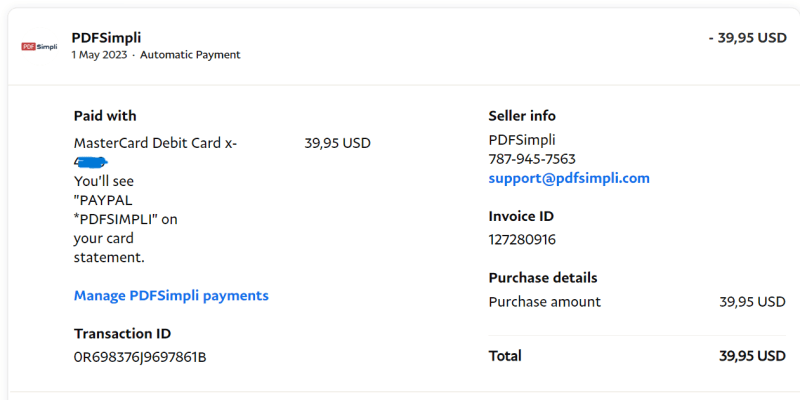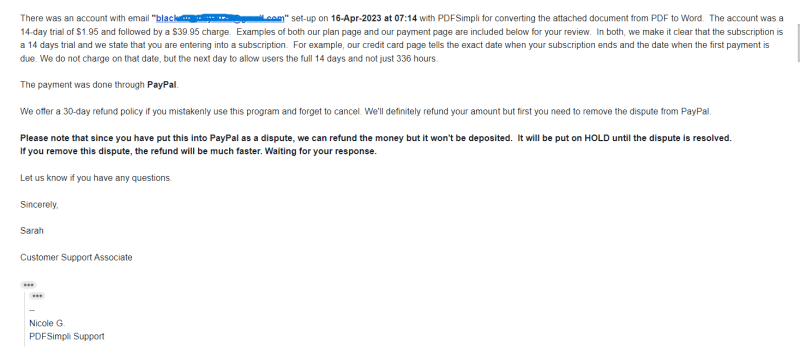The Free Trial Subscription Model has become a popular business model for companies looking to attract new customers. It offers customers a chance to try out a product or service for a limited time without having to make an upfront payment. However, some companies have been accused of using this model to scam their customers.
A recent experience with PDFSimpli and PayPal highlights the potential dangers of this model. PDFSimpli is a company that offers a PDF editing service. They offer a few days trial for $1.95 or something, after which customers are automatically enrolled in a monthly subscription if they do not cancel.
After using the trial, the customer found the quality of the product to be poor and decided not to continue with the service. However, after 16 days, they discovered that PDFSimpli had charged them $39.99 for a monthly subscription. This was because they had not removed their payment method from their trial account.
The customer attempted to dispute the charge with PayPal but was denied. PDFSimpli continued to email the customer, promising a refund if they made a dispute on their PayPal claim. However, when the customer tried to make a dispute, they found that it was not possible through PayPal's platform. PayPal support opened another case for PDFSimpli, but nothing was resolved.

This is a clear example of a scam that is often perpetrated by companies using the Free Trial Subscription Model. In this case, PDFSimpli offered a low-cost trial period, hoping that the customer would forget to cancel and then charged them for a monthly subscription without their consent. While PDFSimpli's terms and conditions state that customers will be automatically enrolled in a monthly subscription, but how many of us when need some service and when we searching for the best one think about this unfair problem which we can get later? What's the problem to sent email or two before the end of that scam trial period?

This situation highlights the need for companies using the Free Trial Subscription Model to be transparent with their customers. Companies must clearly communicate the terms of the trial, including the automatic enrollment in a subscription and the associated costs. In addition, they must provide customers with a clear and easy way to cancel their subscription before the end of the trial period.
Furthermore, companies should send a reminder email a day or two before the end of the trial period to give customers an opportunity to cancel if they do not wish to continue with the service. This would give customers a fair chance to avoid being charged for a service they no longer want or need.
Really don't see what's the problem to send email/ notification day-two before endo of trial period? How many of you had the same issue?
In conclusion, the Free Trial Subscription Model can be a useful business model for companies looking to attract new customers. However, companies must use this model ethically and transparently, or risk being accused of scamming their customers. It is important for customers to read the terms and conditions carefully before signing up for a free trial and to keep track of trial periods to avoid unwanted charges.







Top comments (1)
Personal experience with this Free Trial Subscription Model, which bad companies use in selling their poor quality products. #pdfsimpli for example!